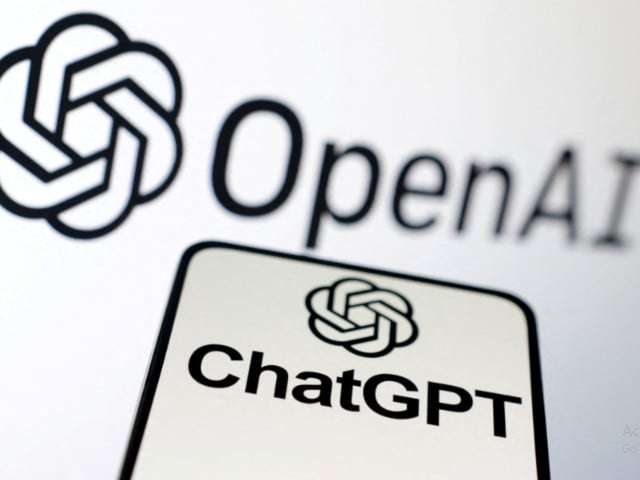OpenAI has launched Operator, a new AI agent capable of autonomously performing various online tasks. This groundbreaking development marks a significant leap forward in the evolution of AI agents, providing users with the ability to complete tasks such as booking travel or shopping online without manual intervention.
In a move that could revolutionize how we interact with technology, Operator is designed to handle a wide variety of online functions, streamlining the process of everyday online interactions. Here’s an in-depth look at what Operator can do, its capabilities, and how it’s set to change the way we perform tasks on the web.
What is Operator?
Operator is an AI-powered agent created by OpenAI that allows users to automate online tasks with minimal effort. By leveraging the advanced capabilities of GPT-4 alongside a Computer-Using Agent (CUA) model, Operator can autonomously navigate websites, complete forms, and make purchases or bookings.
Unlike traditional virtual assistants like Siri or Alexa, which offer limited interaction, Operator goes a step further by carrying out actions on behalf of the user. For example, you can instruct the agent to reserve a restaurant table, book flights, or shop for specific items online.
Key Features of Operator
- Autonomous Task Execution: Operator can take full control of a web browser to perform various tasks without human intervention. It can fill out forms, navigate menus, and click buttons, simulating human behavior on websites.
- Wide Range of Tasks: The AI is designed to handle tasks such as shopping, delivery, dining, and travel bookings. OpenAI has partnered with major businesses, including eBay, Priceline, Instacart, DoorDash, Uber, and StubHub, to enable Operator to execute these tasks seamlessly.
- User Monitoring: While the AI performs tasks autonomously, users can still monitor its actions and provide feedback. For tasks with significant consequences (like purchases or reservations), users are prompted for confirmation before the agent completes them.
- Enhanced Vision and Reasoning: Operator combines GPT-4’s advanced reasoning capabilities with computer vision, allowing it to interpret images, navigate dynamic web pages, and interact with various online interfaces efficiently.
How Does Operator Work?
Operator operates through a dedicated web browser that the AI can control independently. Once users input their commands or objectives, the agent begins the task by performing a series of automated actions, just as a human would. The AI uses computer vision to read web pages, identify clickable buttons, and fill out forms, allowing it to complete tasks without requiring developer-specific APIs.
Task Execution Process
- User Input: The user provides Operator with a task, such as booking a flight or shopping for a specific product.
- Autonomous Navigation: Operator autonomously navigates the website or app, performing necessary actions such as filling out forms, searching for items, and adding products to the cart.
- Task Confirmation: For sensitive actions like making purchases, the AI pauses and asks the user for confirmation before proceeding.
- Completion: Once confirmed, Operator finalizes the task, ensuring that all details are correct.
Task Categories
The tasks Operator can handle are diverse, covering a range of domains, including:
- Travel: Booking flights, checking in, and managing reservations.
- Dining: Making restaurant reservations and placing orders.
- Shopping: Purchasing items from e-commerce platforms like eBay and Instacart.
- Delivery: Ordering food or other services through apps like DoorDash and Uber.
Pricing and Availability
Currently, Operator is available to U.S. users who subscribe to the $200 Pro subscription plan. OpenAI has also made the research preview available to Plus, Team, and Enterprise users, with plans to expand the feature to additional tiers in the future.
The service is accessible through a dedicated website, operator.chatgpt.com, where users can monitor tasks as they are carried out. There are also future plans to integrate Operator into all ChatGPT clients, making it widely available to a broader audience.
Availability by Region
While the feature is currently available in the United States, OpenAI plans to expand Operator‘s reach globally, though Europe will have to wait longer due to regulatory considerations.
Security and Limitations
Despite the advanced capabilities of Operator, there are certain limitations and security measures in place to ensure safe usage.
Limitations of Operator
- Complex Tasks: Operator struggles with specialized tasks such as creating detailed slideshows or managing intricate calendar systems.
- Non-Standard Interfaces: The agent can also face difficulties interacting with highly customized or non-standard websites.
- Financial Transactions: For tasks like banking transactions, Operator requires user supervision to ensure accuracy.
Security Features
To prevent potential misuse and ensure safe usage, OpenAI has built several safeguards into Operator:
- Manual Input of Sensitive Information: Users must manually enter sensitive information like credit card details to complete financial transactions.
- Supervision for Sensitive Sites: On platforms like email or banking sites, users must supervise the process to avoid errors.
- Rate Limits: OpenAI has imposed dynamic rate limits on the number of tasks Operator can perform in a given period.
- Restricted Tasks: Certain actions, such as sending emails or deleting calendar events, are restricted for security reasons. However, these restrictions may be lifted in the future.
Competitor Landscape
OpenAI’s Operator is entering a competitive market, with Rabbit, Google, and Anthropic also developing AI agents with similar capabilities. However, OpenAI has taken significant steps to ensure that Operator stands out by implementing robust security protocols and offering a highly intuitive user experience.
Safety Concerns
As with any advanced AI, there are inherent safety concerns regarding malicious use. OpenAI has implemented monitoring systems to detect suspicious activities and pause execution when necessary. Continuous updates to Operator’s security protocols ensure it remains secure as the technology evolves.
Future Outlook
The launch of Operator is a major milestone in the development of AI agents, a technology hailed as the next significant leap in AI evolution. Unlike traditional virtual assistants, Operator can carry out tasks independently, offering a new dimension to how users interact with the digital world.
As Operator continues to evolve, it has the potential to transform a variety of industries, including e-commerce, travel, food delivery, and customer service. With ongoing developments and expansions, OpenAI’s Operator is poised to redefine how we approach automation in our daily lives.
FAQs
1. What is Operator by OpenAI?
Operator is an AI-powered agent developed by OpenAI that can autonomously perform a variety of online tasks, including shopping, booking travel, and making reservations.
2. Who can access Operator?
Currently, Operator is available to U.S. users with the $200 Pro subscription plan. It will also be expanded to other users in the Plus, Team, and Enterprise tiers in the future.
3. How does Operator work?
Operator uses AI-powered computer vision and reasoning models to autonomously interact with websites, fill out forms, and complete tasks. Users can monitor the process and provide feedback or confirmation before tasks are finalized.
4. Are there any limitations to Operator?
Yes, Operator struggles with tasks like creating slideshows, handling intricate calendars, and interacting with highly customized websites. It also requires supervision for sensitive tasks like banking transactions.
5. What security measures are in place for Operator?
Operator has built-in safeguards, including manual input for sensitive information, user supervision for certain websites, and rate limits to prevent misuse.



